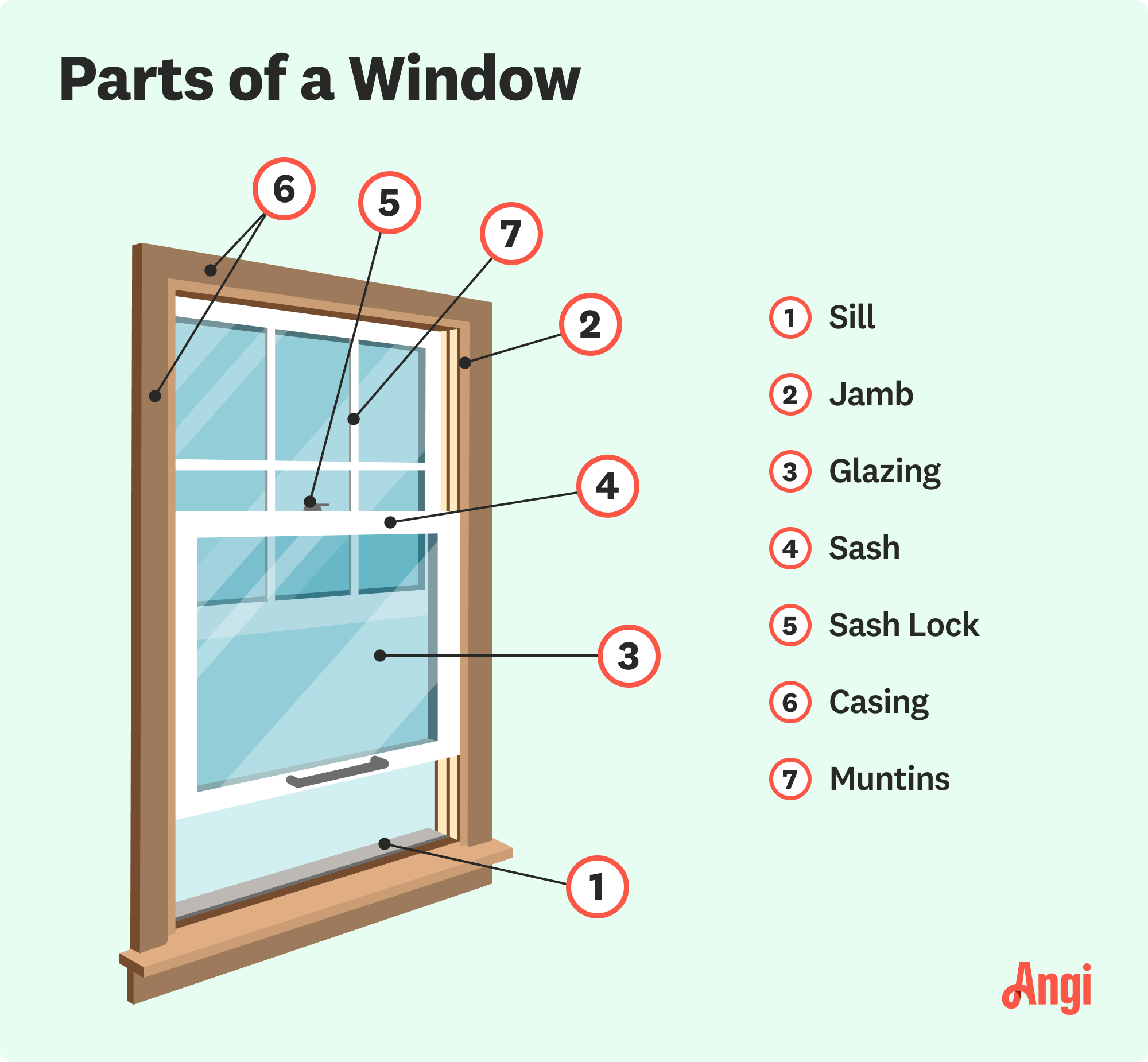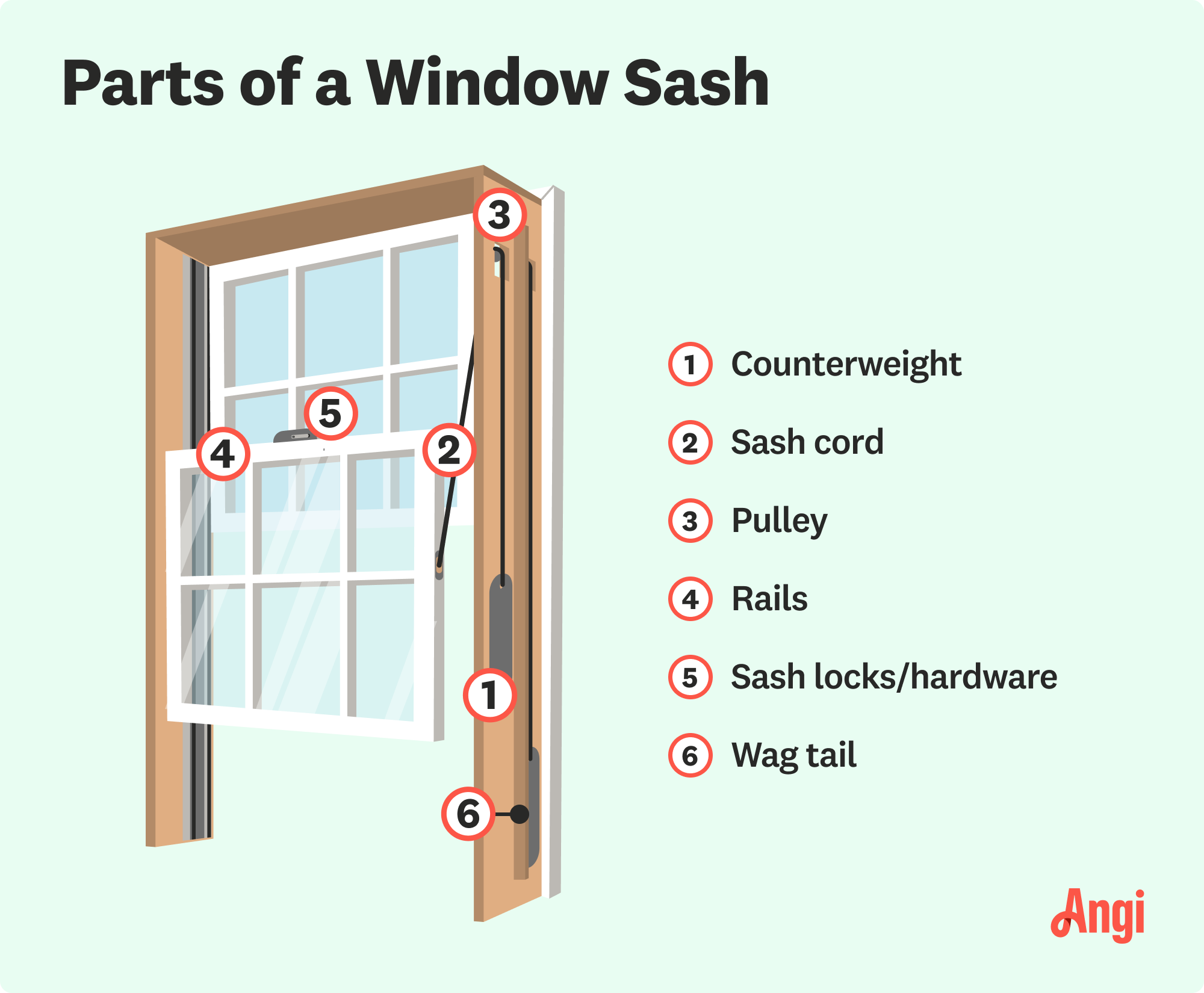
Window replacement enhances your home's appearance and helps to maintain a consistent indoor temperature. Discover the cost of window replacement in Columbus.
Learn how window sashes hold it all together


Window sashes allow you to open and close your window.
While sashes are horizontal in classic double-hung and single-hung windows, they're vertical in casement windows.
In addition to enhancing the structural integrity of windows, sashes create an airtight seal to protect homes from drafts and moisture.
While minimal maintenance is needed for window sashes, there are some telltale signs of trouble to know about.
Getting to know the parts of a window in anticipation of a new build or big remodel? Essential for the function of a window, the sash is the frame that holds glass panes tightly in place. What is a window sash used for? In addition to adding support, window sashes make window glass moveable. Keep reading to learn everything you need to know.

When looking at a window, the sash is the movable part within the window frame that holds the glass panes in position. It fully encompasses panes to provide structural support and protection. While window sashes were once typically made of wood, modern window designs feature sashes made from wood, metal, or vinyl. Cost, durability, and aesthetics are all considerations when selecting window sashes.
When taking on this project, expect questions only a pro can answer. With our network of local pros, you'll get the job done and your questions answered—without the hassle and stress of doing it yourself.

A window sash is actually a dual-purpose window feature. First, it reinforces the glass window pane, adding to the overall stability of a window. Second, by creating a barrier between the window glass and frame, a sash forms an airtight fit that helps to keep out drafts and pests, adding to a home's overall efficiency. Even the best energy-efficient windows can't do their job if the window sash isn't working properly.
Of course, the most obvious purpose of a window sash is to act as the mechanism for opening and closing a window. A standard window has two stacked sashes that become immobilized when clasped together with sash locks. When the clasps are unlocked, each window can be slid up or down on the rails to allow you to open or close your window. The system of cords, weights, and spiral balances within the sash's frame allows you to enjoy smooth, controlled movement that keeps an open window in a fully open or partially open position.
With homeowners having hundreds of different window styles to choose from, window sashes vary widely. However, most fall into one of the basic categories.
This is the window sash most of us picture when thinking of a classic window that opens and closes vertically. With the double-hung style, there's an upper window sash stacked above a lower sash. While it's standard for the lower sash to be moveable, the upper sash can either be movable or stationary. The latter is called a single-hung window or lower sash window.
Casement windows are best described as scaled-down versions of French doors. They either work on a crank system or are designed to be pushed open manually. An advantage of casement window sashes is that they allow for much stronger airflow and unobstructed views.
A well-made window sash can easily last 50 years. The most obvious sign a window sash needs to be replaced is that you're having trouble moving it up and down. If a window sash is sliding down on its own, it has probably fulfilled its useful lifespan. A sash may also become stuck or jammed if it's been damaged by water. Additionally, a window sash that's allowing water to seep into your home needs to be addressed. Here are some common problems with window sashes:
Wooden window sashes: Swelling, shrinking, rot, and mold.
Aluminum window sashes: Sweating and condensation on the window.
Vinyl: Warping, sudden poor fit against the window, and leaks.
In general, window sashes don't require any special maintenance or care. However, homeowners with wooden sashes should seal or repaint sashes every few years. In addition, it's important to keep an eye out for any signs of mildew, mold, or wood softening. It's also important to make sure a sash is securely in place after attempting any kind of cracked window DIY. If sashes are showing signs of deterioration, it's important to contact a local window repair company near you.
From average costs to expert advice, get all the answers you need to get your job done.

Window replacement enhances your home's appearance and helps to maintain a consistent indoor temperature. Discover the cost of window replacement in Columbus.

Window repair costs in Columbus, Ohio, depend on several pricing factors, including the type and size of the repair it needs and the window itself.

Garden windows can be a great addition to your kitchen, adding light and a place to grow plants. Costs depend on material, size, and customization—learn how much you can expect to pay.

A window well can increase natural light in your basement and prevent flooding. Learn about window well installation and the steps to tackle the project.

If you’re looking to upgrade your window frames, you’ll find there are many options. Here’s what you need to know about window frame types and materials.

If you’ve been facing storms or humidity recently, it may be time to learn how to repair a rotted window frame to make your windows look brand new.